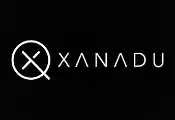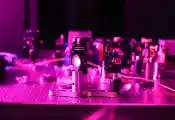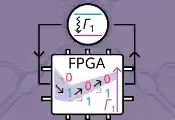Signature of the Procurement Contract for the EuroHPC Quantum Computer Located in Germany
October 15, 2024 -- The Euro-Q-Exa system will be a digital quantum computer based on superconducting qubits and state-of-the-art entangling capabilities that will offer two separate systems: a 54 qubits system in the second half of 2025, and a 150-qubit system by the end of 2026.
The Euro-Q-Exa quantum computer will be available to a wide range of European users, from the scientific community to industry and the public sector. The upcoming quantum computing infrastructure will support the development of a wide range of applications with industrial, scientific and societal relevance for Europe, adding new capabilities to the European supercomputing infrastructure.
The system, which will be owned by the EuroHPC Joint Undertaking (EuroHPC JU) will be hosted at the Leibniz Supercomputing Centre (LRZ) in Germany and integrated into LRZ’s supercomputing systems, including SuperMUC-NG. The quantum system will be connected to the HPC network and integrated into the supercomputer architecture via a unified hybrid software environment and user experience.
The total cost of the two systems is EUR 25 million and will be co-funded by the EuroHPC JU, the Federal Ministry of Education and Research (BMBF) and the Bavarian State Ministry of Science and the Arts.
The installation of the first system will start in 2025.
Background
IQM Quantum Computers has been selected following the call for tender that was launched in November 2023.
In 2023, the EuroHPC JU signed hosting agreements with six sites across Europe to host and operate EuroHPC quantum computers: in Czechia, Germany, Spain, France, Italy, and Poland.
In 2024, the EuroHPC JU has announced the signatures of the procurement contracts for the EuroQCS-Poland quantum computer, the LUMI-Q consortium’s quantum computer and Lucy, the EuroHPC Quantum Computer Located in France.
The selection of six hosting entities followed the view of offering the widest possible variety of different European quantum computing platforms and hybrid classical-quantum architectures, giving Europe the opportunity to be at the forefront of this emerging field, and to provide European users with access to diverse and complementary quantum technologies.
This initiative offers a novel interpretation of quantum computers as accelerator platforms in genuine HPC environments. The foreseen integration will require essential R&D developments towards a hybrid software stack managing both HPC and quantum computing (QC) workloads. During the integration work, all Hosting Entities will collaborate closely with European Standardisation bodies.
These six quantum computers come on top of two analogue quantum simulators procured under the EuroHPC JU project HPCQS and which are based on neutral atoms, supplied by the French company PASQAL. HPCQS aims to develop and coordinate a cloud-based European federated infrastructure, tightly integrating two quantum computers, each controlling 100-plus qubits in the Tier-0 HPC systems Joliot-Curie of GENCI and the JUWELS modular supercomputer at the Julich Supercomputing Centre (JSC).




































